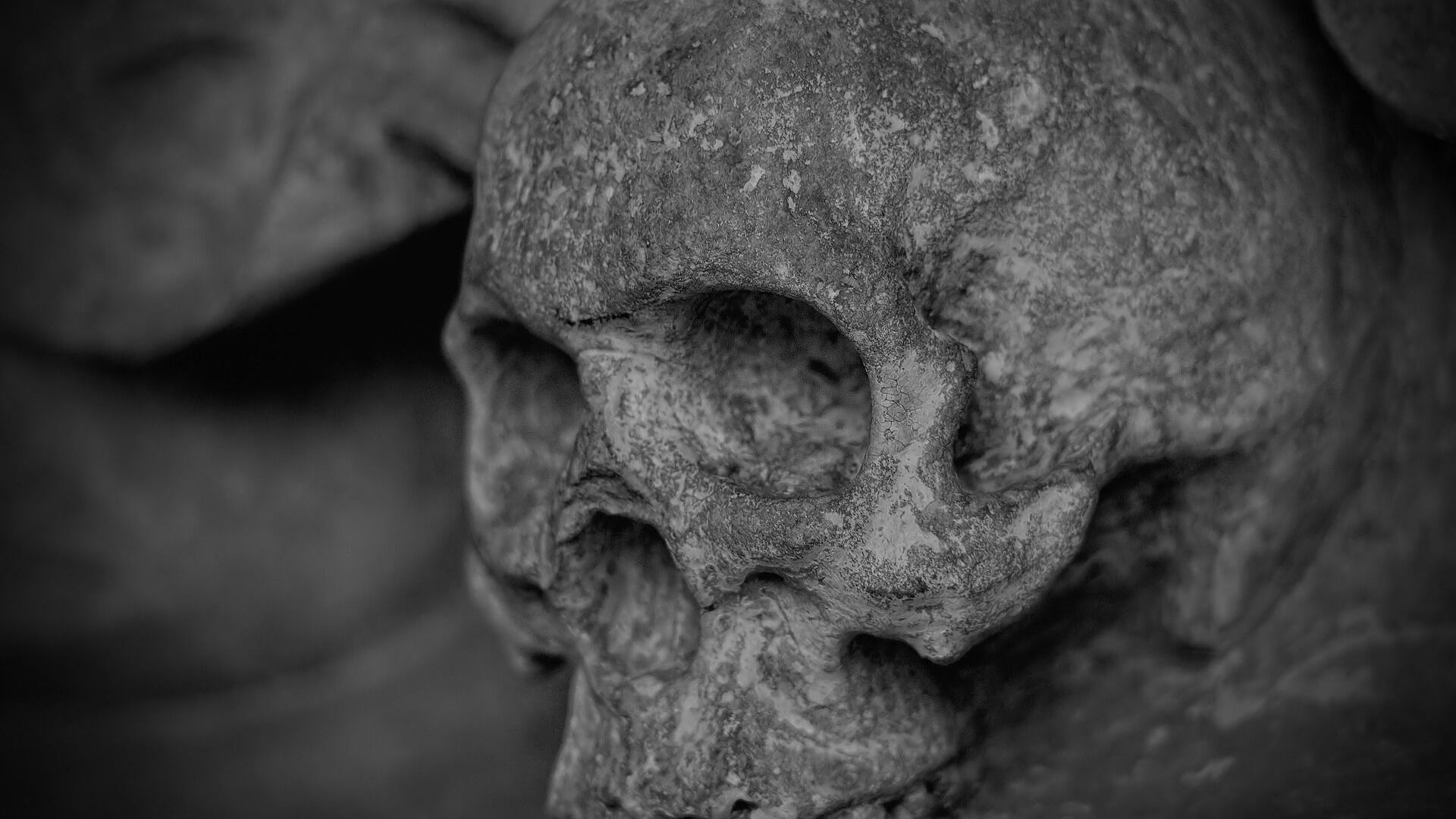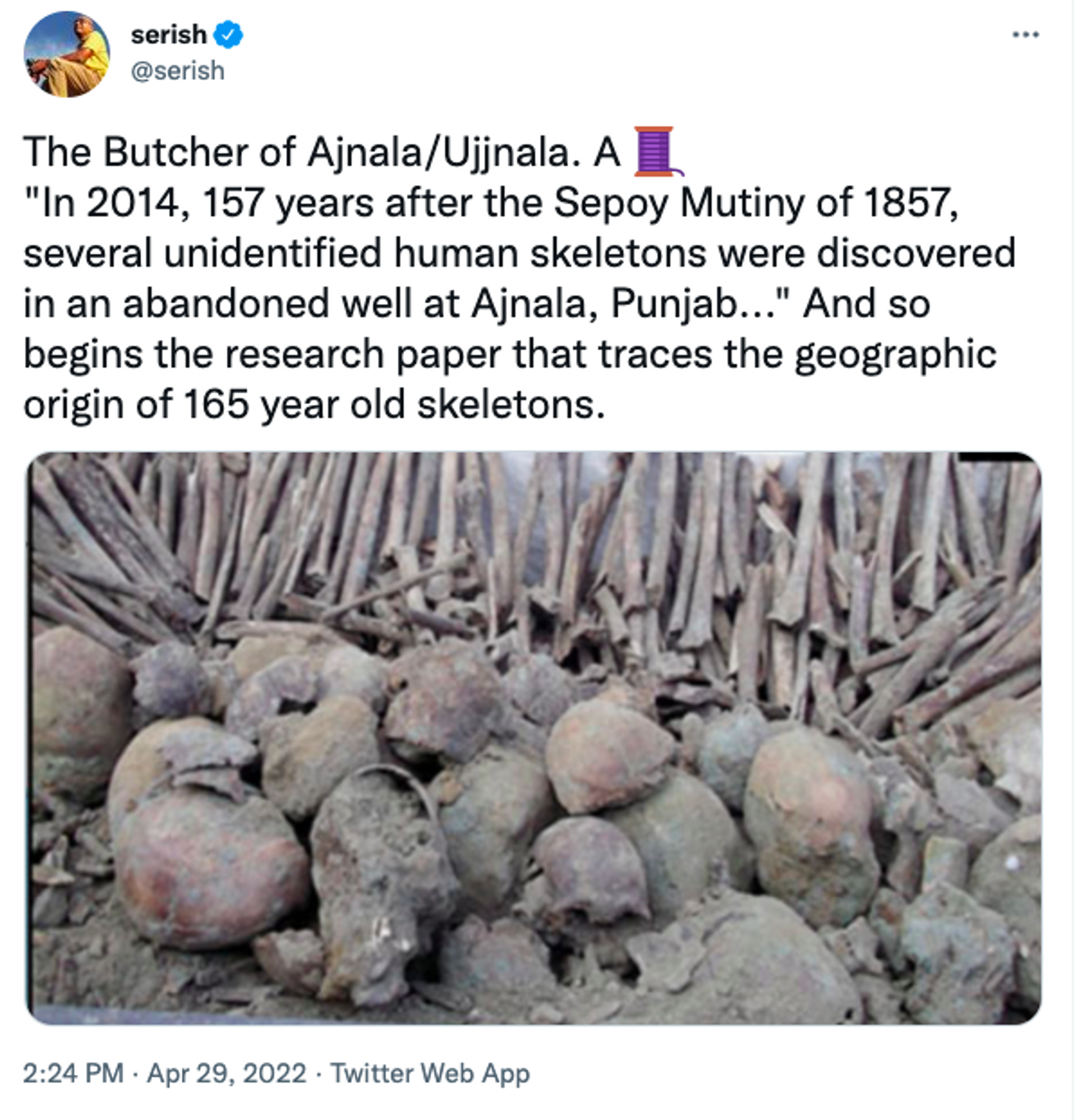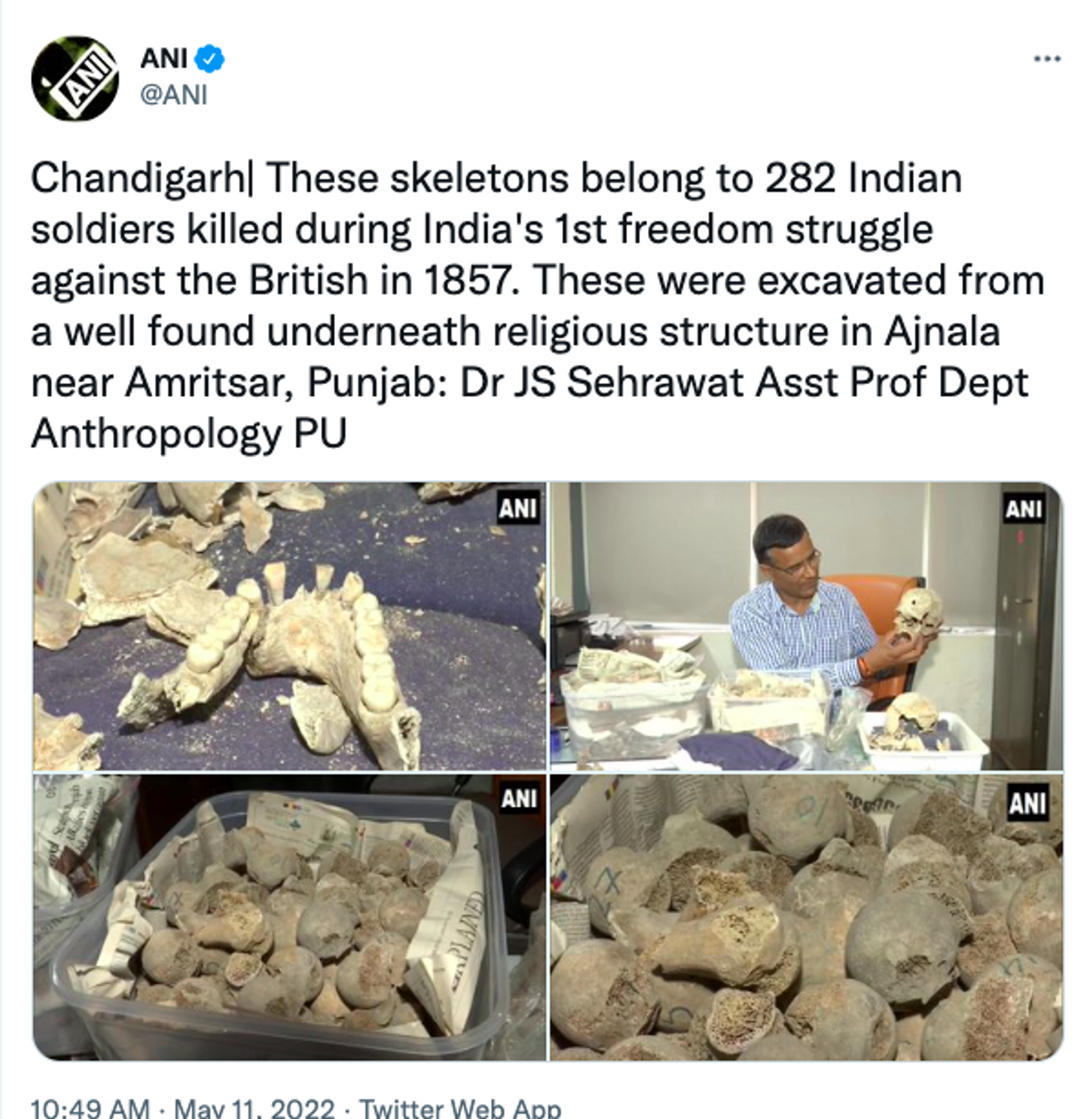https://sputnikglobe.com/20220511/confirmed-282-skeletons-discovered-in-punjab-belonged-to-indian-soldiers-killed-in-1857-revolt-1095430257.html
Confirmed: 282 Skeletons Discovered in Punjab Belonged to Indian Soldiers Killed in 1857 Revolt
Confirmed: 282 Skeletons Discovered in Punjab Belonged to Indian Soldiers Killed in 1857 Revolt
Sputnik International
The skeletal remains of 282 soldiers were dug up on 28 February 2014 in the town of Ajnala in Punjab state. However, since then, the identity and geographic... 11.05.2022, Sputnik International
2022-05-11T13:43+0000
2022-05-11T13:43+0000
2022-07-19T10:43+0000
punjab
human skeletons
british history
british empire
https://cdn1.img.sputnikglobe.com/img/107797/98/1077979841_0:100:1921:1180_1920x0_80_0_0_ef36f5046d863818d576caa30566c3ae.jpg
An Indian anthropologist on Wednesday confirmed that 282 skeletons, found during a 2014 excavation, belong to young soldiers of the 26th Native Bengal Infantry who were either shot dead and/or dumped alive into a well by East India Company officials.According to Indian anthropologist Dr J.S. Sehrawat, to ensure that no foul smell emanates from the well, "they covered the bodies with coal and lime". He said that along with the skeletons, gold earrings, necklaces, rings, uniform stars, stone bullets, and coins of the East India Company were also found. "However, the skeletons were completely crushed".“It is believed that these soldiers revolted against the use of pork and beef-greased cartridges”, Dr Sehrawat added.The famed 1857 revolt, also called the Sepoy Mutiny, is said to be India’s first uprising for independence in which many Indian soldiers working in the British Indian army revolted to oppose the use of pork and beef greased cartridges, citing religious beliefs.
punjab
Sputnik International
feedback@sputniknews.com
+74956456601
MIA „Rossiya Segodnya“
2022
Deexa Khanduri
https://cdn1.img.sputnikglobe.com/img/07e4/0c/1e/1081607388_0:0:961:960_100x100_80_0_0_e9e931b8c1e18fb41f3074e2145d7a3a.jpg
Deexa Khanduri
https://cdn1.img.sputnikglobe.com/img/07e4/0c/1e/1081607388_0:0:961:960_100x100_80_0_0_e9e931b8c1e18fb41f3074e2145d7a3a.jpg
News
en_EN
Sputnik International
feedback@sputniknews.com
+74956456601
MIA „Rossiya Segodnya“
Sputnik International
feedback@sputniknews.com
+74956456601
MIA „Rossiya Segodnya“
Deexa Khanduri
https://cdn1.img.sputnikglobe.com/img/07e4/0c/1e/1081607388_0:0:961:960_100x100_80_0_0_e9e931b8c1e18fb41f3074e2145d7a3a.jpg
punjab, human skeletons, british history, british empire
punjab, human skeletons, british history, british empire
Confirmed: 282 Skeletons Discovered in Punjab Belonged to Indian Soldiers Killed in 1857 Revolt
13:43 GMT 11.05.2022 (Updated: 10:43 GMT 19.07.2022) Deexa Khanduri
Sputnik correspondent
The skeletal remains of 282 soldiers were dug up on 28 February 2014 in the town of Ajnala in Punjab state. However, since then, the identity and geographic origins of the skeletons have been under intense debate due to a lack of scientific evidence.
An Indian anthropologist on Wednesday confirmed that 282 skeletons, found during a 2014 excavation, belong to young soldiers of the
26th Native Bengal Infantry who were either shot dead and/or dumped alive into a well by East India Company officials.
According to Indian anthropologist Dr J.S. Sehrawat, to ensure that no foul smell emanates from the well, "they covered the bodies with coal and lime".
He said that along with the skeletons, gold earrings,
necklaces, rings, uniform stars, stone bullets, and coins of the East India Company were also found. "However, the skeletons were completely crushed".
“It is believed that these soldiers revolted against the use of pork and beef-greased cartridges”, Dr Sehrawat added.
The famed 1857 revolt, also called the Sepoy Mutiny, is said to be India’s first uprising for independence in which many Indian soldiers working in the
British Indian army revolted to oppose the use of pork and beef greased cartridges, citing religious beliefs.




